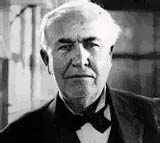Startups
What I Wish I Had Known: 8 Entrepreneurs Share Their Startup Secrets
If you’ve ever tried to start your own company, then you know that some of the “advice” you get from friends, relatives, and even perfect strangers isn’t always all that valuable.
It can range from the simply unhelpful (“Don’t go out of business!”), to the impossible (“Give it everything you’ve got!”), to the downright dangerous (“No matter what happens, stick it out!”), but you can bet that once everyone has offered their two cents’ worth, you probably won’t be any closer to grasping that elusive secret of success. Of course, that all changes when you’re getting your advice from some of the most successful entrepreneurs in the world. These people know what they’re talking about, and they’re willing to share their wisdom with you. Yes, you. So get ready to be enlightened, because here are nine pieces of startup advice from people who actually know what they’re talking about.
Here are the 8 secrets of startup success from a handful of successful entrepreneurs.
What I Wish I Had Known
1. Jared Kim (Founder & CEO of Forge)
“Don’t burn out. Take care of yourself by getting 8 hours of sleep, eat healthy, and exercise. If you don’t take care of yourself, there’s no way you can take care of your company in the long-term.”
It may seem as though your new company is the most important thing in the world, but it isn’t. If you sacrifice your own health and happiness for the sake of your company, then you’ll just end up without happiness in either.
2. Leo Widrich (Co-founder of Buffer)
“It took me years to finally start saying no to things that would take me away from what really needed my attention. No to meetings. No to interviews, and no to extra projects (for extra money.) When I implemented my daily to-do lists my whole day/week/month changed. I would only accept opportunities if they could come after my to-dos were completed.”
Sometimes, as the founder of a new startup, it’s easy to overload yourself. When new responsibilities or opportunities come along, feel free to put them on your plate, but only if they don’t end up costing you time and energy that should be going towards more important issues.
3. Mark Otero (Founder & CEO of Klicknation)
“Know your weaknesses: Knowing your weaknesses is as important as knowing what your strengths are, and even more important as your company grows; hire or have co-founders who are great in areas where you are weak.”
Chances are you’re not an expert in every area where your business will require you to be an expert. Maybe you have problems with finances. Maybe you just don’t get marketing. Maybe the idea of schmoozing with investors makes your sweat through your suit. Well, that’s all OK, as long as you’re sure to hire people who fill in the gaps in your armor, as the Mark Otero, founder of Klicknation, explains.
4. Todd Pedersen (Founder & CEO of Vivint)
“First, if you’re going to run a company, you have to provide the best service you possibly can for your customers. Second, you have to treat your employees like gold. And then three, everything else will work itself out.”
The secrets to building a successful company aren’t really secrets at all; you just give customers what they want and treat your employees well, like Todd Pedersen, CEO of Vivint, has said. Of course, just because it’s simple to say, it does not necessarily follow that it’s easy to implement.
5. Phineas Barnes (Partner at First Round Capital)
“Your choice of partners and investors should be thought of as permanent and are therefore the most important two decisions you make.”
Starting a business is a big commitment. In fact, if all goes well, then it may be a large part of your life for the rest of your life, as Phineas Barnes of First Round Capital explains. As such, you’ll want to be very careful about whom you include in your startup, because if you aren’t, you may end up having to deal with an imperfect fit for years—or even decades—to come.
6. Jeff Bezos (Founder & CEO of Amazon.com)
“I knew that if I failed I wouldn’t regret that, but I knew the one thing I might regret is not trying.”
For some reason, many of us have been conditioned to be more afraid of failure than we are of inaction. However, failure, in addition to being inherently valuable as a learning process, contains within it the chance of success. And no matter how small that chance is, it’s better than the chances of success when we choose not to even try.
7. Peter Berg (Founder of October Three)
“Be really picky with your hiring, and hire the absolute best people you possibly can. People are the most important component of almost every business, and attracting the best talent possible is going to make a huge difference.”
While CEO’s and founders, and the ideas on which their success is built, often get the spotlight when it comes to business, the truth is that it is the employees that actually breathe life into a company. Even the most innovative idea can wither and die without the right kind of support from a talented workforce, so give your hiring process the attention and time that it deserves.
8. Thomas Edison (Founder of General Electric)
“The value of an idea lies in the using of it.”
You have an idea that will change the world? Well, it’s not worth anything unless you can turn that idea into a reality. So take the plunge and see just how far that idea can take you. Or, you can sit around trading advice over the internet.
The choice is yours.
Shift Your Mindset
10 Powerful Traits Every True Thought Leader Possesses
In a world saturated with noise, thought leadership is the quiet power that shifts paradigms.

Thought leadership is more than just having strong opinions. It’s the ability to influence, inspire, and guide others by sharing original insights, innovative ideas, and deep domain expertise. It’s about sparking change, not just talking about it. (more…)
Startups
The Young Man’s Guide to Creativity: 10 Daily Habits to Improve Your Creative Mind
10 daily habits you can put into practice right now to improve your creativity

When I was 22 years old, I became a Top Writer on Medium.
It’s not an easy path. I lived in the Philippines and had never received a penny after writing over 100 digital articles. But I treated it like practice. If I couldn’t get other people to read my work for free, why would they trust me? (more…)
Startups
If You’re Not Reinventing Yourself, You’re Falling Behind! Here’s What To Do
Reinvention is the secret weapon of high performers.

Reinvention is the secret weapon of high performers.
Most careers follow a predictable script. You start at the bottom, climb the ranks, and eventually settle into something resembling stability. But the people who make the biggest impact, the ones who don’t just play the game but change it, break that script. They evolve. They shift. They reinvent. (more…)
Startups
The Silent Killer of Startups: This Might Be Draining Your Profits
If you are careless in managing your inventory, it can lead to a sudden depletion in cash flow

There are several issues in a startup, but if you are really careless in managing your inventory, it can lead to a sudden depletion in cash flow. Old, broken, and misplaced stock wastes space and profits. If inventories and storage aren’t managed properly, it hardly ever works.
-

 Personal Development4 weeks ago
Personal Development4 weeks agoWant to Change the World? Start by Sharing Your Knowledge
-

 Success Advice3 weeks ago
Success Advice3 weeks agoThe One Mindset Shift That Made Me Irreplaceable At Work
-

 Scale Your Business3 weeks ago
Scale Your Business3 weeks agoWhy Smart Entrepreneurs Never Skip This One Business Expense
-

 Success Advice3 weeks ago
Success Advice3 weeks agoHow Playing by the Rules Became the Smartest Business Strategy
-

 Did You Know2 weeks ago
Did You Know2 weeks ago7 Surprising Life Lessons Video Games Taught Me That School Never Did
-

 Success Advice2 weeks ago
Success Advice2 weeks agoHow to Build Trust, Kill Micromanagement, and Lead a Team That Thrives
-

 Scale Your Business2 weeks ago
Scale Your Business2 weeks agoHow to Build a Workplace People Actually Want to Show Up To
-

 Success Advice1 week ago
Success Advice1 week agoSuccess Isn’t Sexy: 5 Daily Habits That Actually Work






































11 Comments